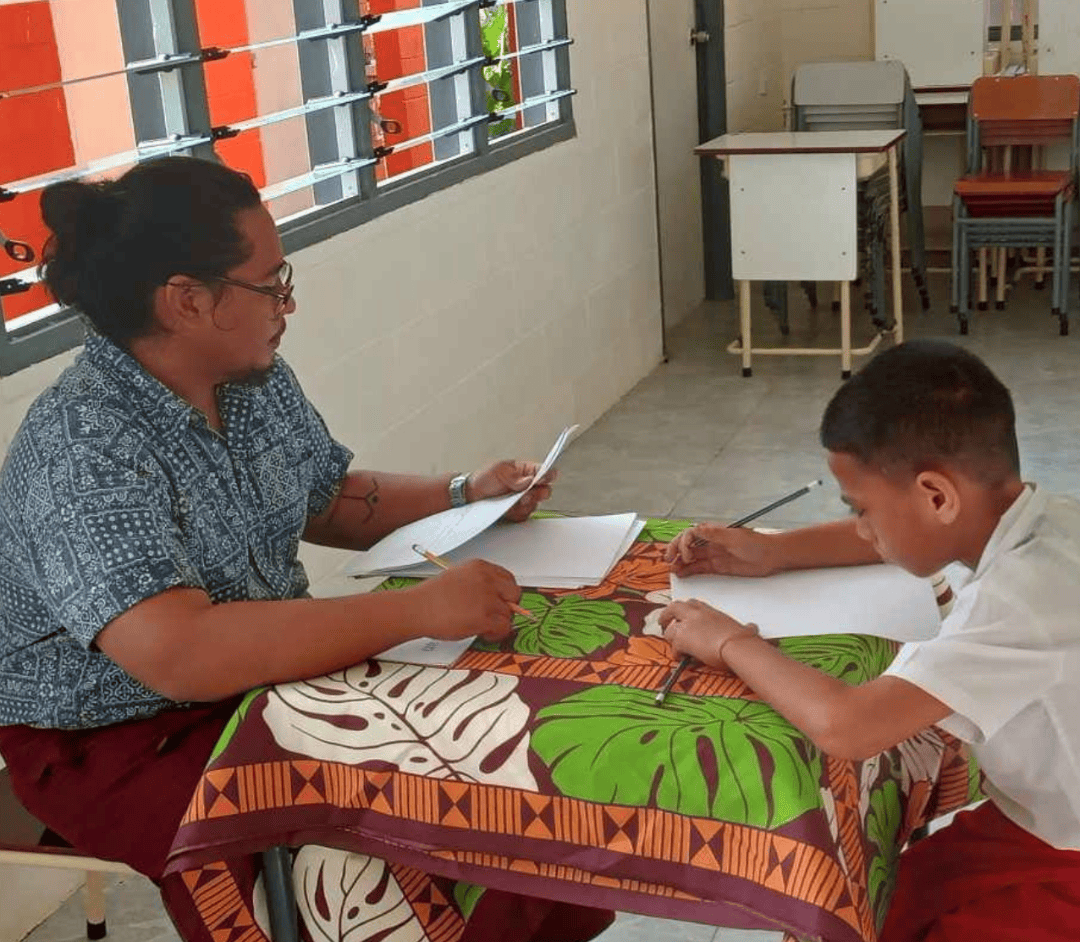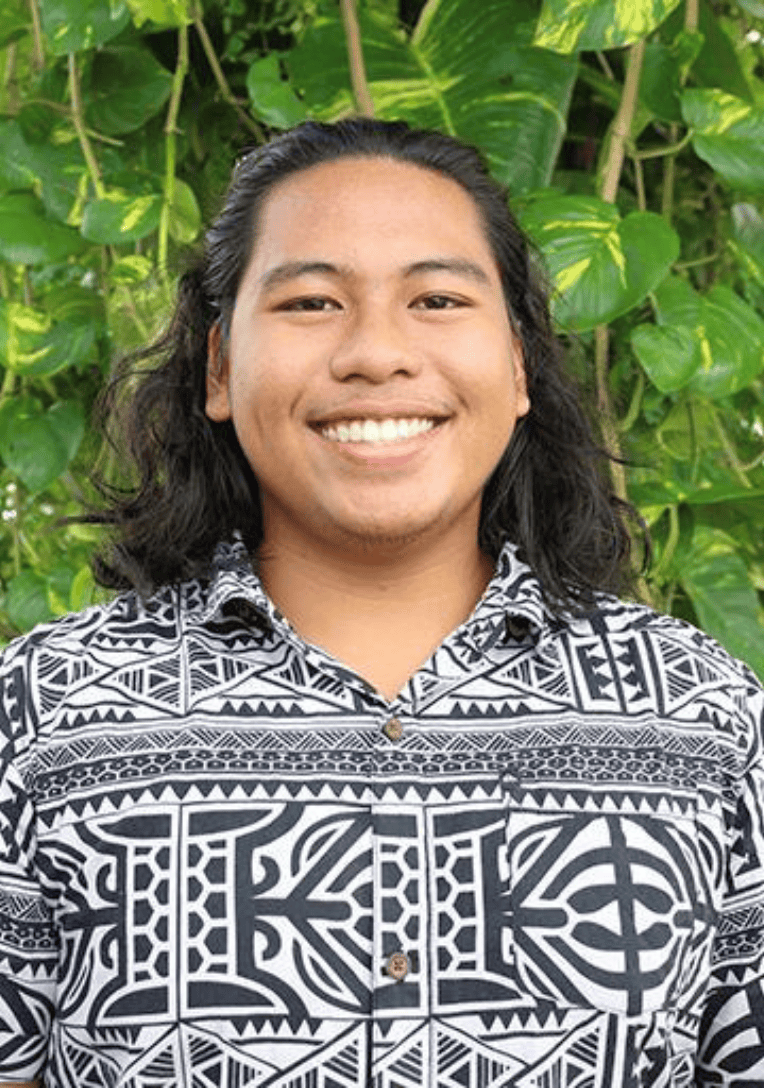Teaching Abroad, Learning for Life: UOG Alum’s Peace Corps Mission in Samoa
Teaching Abroad, Learning for Life: UOG Alum’s Peace Corps Mission in Samoa
Teaching Abroad, Learning for Life: UOG Alum’s Peace Corps Mission in Samoa
10/3/2024
When Lazaro Quinata graduated from the University of Guam in 2020 with a degree in sociology and a minor in CHamoru studies, he was eager to explore new opportunities. The COVID-19 pandemic initially limited his options, but he was able to start his career teaching Guam Studies at Father Duenas Memorial School.
After three years of teaching, competing in paddling, and contributing to a publication centering on Pacific Island pedagogy, he felt that the dots were connecting for him to expand his experience in the Peace Corps.
Joining the Peace Corps
The Peace Corps, founded in 1961, is a volunteer program run by the United States government that sends Americans abroad to tackle pressing needs in education, health, and economic development, while promoting cross-cultural understanding. Volunteers work in underserved communities around the world, typically for two years.
In 2023, Quinata moved to Samoa, an independent island nation located south of Hawaii, to serve as an English Literacy Educator in the Peace Corps. He spent weeks training in the Samoan culture, learning the language, and preparing for his role as a volunteer.
A Year of Teaching in Samoa
During his first year of teaching English at a primary school in a remote host village, Quinata managed the school library, assessed English literacy levels, and collaborated with students on creative ways to teach English, which ultimately helped to build their skills and confidence.
“Watching my students grow more confident with English was rewarding,” he said.
Living in Samoa offered challenges like adjusting to a slower pace of life and overcoming language barriers. However, Quinata later found value in these experiences, especially appreciating his time for rest and recreation.
Personal and Professional Growth
Quinata credits his time with the Peace Corps with helping him grow personally and professionally and reinforcing his commitment to teaching and community involvement.
He shared several insights on teaching, life balance, self-kindness, and the value of embracing awkwardness:
-
On teaching: “Whether you’re at home or abroad, teaching will always positively impact the community. I was just another person working towards uplifting and educating the youth.”
-
On life balance: “After living in Samoa for a year, I saw that there was more to life than the job you had. Other aspects of life like your health, relationships, and the pursuit of your curiosity were just as important.”
-
On self-kindness: “I learned to be more kind to myself. Every moment of every day, you are learning something new. It is important to recognize that you’re human and will make mistakes. Being kind to yourself affects how you view yourself and ultimately influences how you interact with others.”
-
On fitting in: “A great skill I gained was finding peace in awkwardness. In Samoa, where I did not speak the language, dress, or act like the locals, I felt like I did not fit in. But after being in these awkward positions daily, I learned that not fitting in is not necessarily a bad thing.”
A Continuing Journey
Now back in Guam, Quinata’s journey has come full circle. With a renewed sense of purpose, he's focused on revitalizing his family’s farm, reconnecting with nature, and continuing his personal growth. His time in the Peace Corps not only deepened his commitment to teaching but also broadened his understanding of community and self.
For UOG students considering the Peace Corps or similar paths, Quinata offers this advice: “You’re there to support the community, not to lead or make drastic changes. To succeed, you must work together with community members, using your skills to assist their efforts.”
Reflecting on his service, he added, “The Peace Corps is the hardest job you’ll ever love. Despite the challenges, it shaped me in ways I never imagined and deepened my love for humanity.”
UOG Peace Corps Prep Program
UOG students interested in volunteering with the Peace Corps can get a head start by participating in the University’s Peace Corps Prep Program, an interdisciplinary certificate program at the UOG Career Development Office.
The Peace Corps Prep Program focuses on:
-
Developing concrete knowledge and skills in one of six specific work sectors that Peace Corps volunteers serve (education, health, environment, agriculture, youth development, or community economic development)
-
Foreign language skills
-
Intercultural competence
-
Professional leadership development.
For more information, contact Lorenzo Eduvala, Peace Corps Prep Program Coordinator, at eduvalal@triton.uog.edu.


